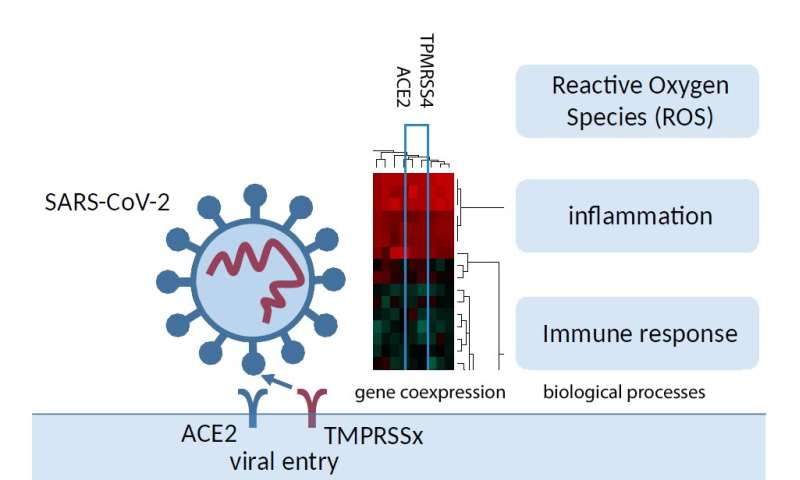SARS-CoV-2 induces inflammation, cytokine storm and stress in infected lung cells

The researchers Wasco Wruck and Prof. James Adjaye from the Institute of Stem Cell Research and Regenerative Medicine, Medical Faculty of Heinrich-Heine-University Duesseldorf, Germany, employed a bioinformatic approach on transcriptome data pertaining to human lung epithelial cells infected with SARS-CoV-2. The meta-analysis unveiled several adversely affected biological processes in the lung which no doubt also applies to other infected organs such as the heart and kidney. Their study is published in Scientific Reports.
With a current estimation of more than 60 million infected people and more than 1.4 million recorded deaths worldwide, COVID-19—the disease caused by the coronavirus SARS-CoV-2, and classified as a pandemic by the WHO—poses a threat to public health, national economies and society as a whole. Although effective vaccines are becoming available, we still need a better understanding of the molecular mechanisms underlying the etiology of COVID-19 to enable more effective therapies in the future.
Wasco Wruck, first author of the study, says: “We initially viewed the results of the analysis in an unbiased manner. To our surprise, we noticed that several Transmembrane Serine Proteases besides the already known TMPRSS2 were highly correlated with ACE2 expression. Furthermore, in a more in-depth analysis, the gene-signature could be annotated with numerous biological processes. Among these were regulation of viral life cycle, immune responses, pro-inflammatory responses, several interleukins such as IL6, IL1, IL20 and IL33, IFI16 regulating the interferon response to a virus, chemo-attraction of macrophages, and cellular stress resulting from activated Reactive Oxygen Species.
Source: Read Full Article


